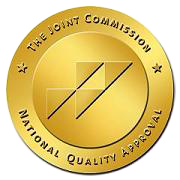Can My Child Stay in School While in Eating Disorder Treatment?
Authors:
Katie Bendel, LCSW
Cara Spagnola, MSW, LISW, LCSW
Kids and teens struggling with mental health issues often need intensive treatment, and they also need to stay in school. For many families, that can feel like an impossible balance. We’ve heard many caregivers say:
- “Won’t missing school cause my child more stress?”
- “I know that school and treatment are both important and I want my child to get the support they need, but I can’t figure out how this is all going to work.”
If you have experienced the same or similar thoughts as a parent or caregiver, you are not alone. You want what is best for your loved one, and you want to make sure you are doing everything you can to make that happen. It is understandable to feel overwhelmed by all of these questions and feelings.
The good news is that it is possible to stay in school while seeking mental health or eating disorder treatment. We’ll show you how.
1. If my child is in treatment most of the day, how will they get school support?
At Eating Recovery Center and Pathlight Mood & Anxiety Center (ERC Pathlight), kids and teens have dedicated school time one to three hours a day, five days a week (Monday through Friday) in a classroom setting. We follow typical fall and spring academic calendars. In most cases, your child can stay enrolled in their current school and complete assignments provided directly by their school. Students in Eating Recovery and Pathlight At Home, our virtual intensive outpatient program for eating disorders and mood and anxiety disorders, access virtual care outside of regular school hours.
2. Who provides educational support at ERC Pathlight?
An education specialist works with students in our inpatient, residential and partial hospitalization programs. These teachers are trained to partner with your child’s school to make sure assignments are reasonably achievable during the academic hours provided. They also serve as an academic liaison with parents, school contacts and administrators. Education specialists will review all school assignments with your child and empower them to complete their schoolwork independently. If your child needs a little extra support, our education specialist can work with them one on one.
3. What if my loved one’s school will not accept course work completed off campus or will not work with the treatment center?
Our goal is for students to stay enrolled and complete assignments provided directly by their current school. However, some schools and districts mandate physical attendance and must withdraw students upon admission to a treatment program. In these cases, students are enrolled in their school or district’s online program, which reviews transcripts and advises online course enrollment based on each student’s academic background. These credits can be completed at home, even if a patient discharges from treatment and returns to another state. At the end of the semester, transcripts are sent to your loved one’s school and credit hours are processed.
4. Is it possible for students to stay on track and advance to the next grade level?
As you may know, it is not uncommon for kids and teens to experience academic decline when struggling with their mental health. Concerning symptoms caregivers might notice include:
- Fatigue
- Physical discomfort
- Restlessness
- Difficulty concentrating
- Lack of motivation
- Trouble getting out of bed
- Frequent school absences
- Leaving school early due to headache or stomachache
- Decline in grades
- Hopelessness
Many caregivers understandably worry that by changing the school routine, academic problems will only get worse. However, with mental health treatment, these symptoms start to become more manageable, making academic work less daunting. Students are typically able to stay on track academically, and their chances of long-term academic success and achievement will increase [1].
5. Is it possible that distancing my child from their friends or extracurricular activities will spike their symptoms?
Many caregivers also worry about their loved one’s mental health worsening as a result of distance from peers, inability to participate in extracurricular activities or disruption of the normal school routine. The risk of not accessing care is typically greater than any risk of taking time away from school [1,2]. It will be hard, and they may experience new or increased anger, grief or fear when first transitioning into treatment. The good news is that this is an opportunity to learn new coping skills and to practice using them in real time. We’ll be here to walk you and your loved one through their distress. We consider this an opportunity to better understand your loved one, show them new ways of coping and prioritize their mental health. When used appropriately and under the right circumstances, the reward of time spent in extracurricular activities and with friends can be a helpful motivator.
6. Is there anything I can do before treatment to support my child’s education?
Yes! We encourage you to advocate for your loved one to have all available support and accommodations possible. Under federal law, children with chronic or life-threatening illnesses and/or disabilities are entitled to educational support and accommodations [3]. Your loved one’s school should be able to help you create a 504 plan or an individualized education program (IEP).
Eating disorders, mood disorders, anxiety disorders and trauma-related disorders fall under the Individuals with Disabilities Education Act (IDEA). Once a child has been admitted to treatment, health providers can give any needed documentation to access this support. Some accommodations that we suggest including in a 504 plan or IEP are as follows:
- Consider attendance in treatment to be equivalent to school attendance.
- Assign no penalties for failure to log on to a virtual class meeting or failure to complete assignments related to information shared in virtual class meetings.
- Reduce assignments to those essential for course credit.
- Limit repetitive assignments.
- Accept partially completed assignments if the student has satisfactorily exhibited mastery of the concept.
- Provide due date extensions as requested.
- Provide alternative assignments as requested.
_______________________________________
Meet Rachel, an ERC Pathlight education specialist
Rachel works with kids and teens ages 12-18. Her teaching background has spanned 26 years, in general and special education, and from pre-K through junior college in the public school setting.
When our team visited Rachel’s classroom at Eating Recovery Center Chicago in Oak Brook, Illinois, they felt nostalgic for the space: papers atop clusters of desks, posters on the walls and a group of chatting young teens on their way out the door. The space was colorful, warm and decorated with plants that brought peacefulness and nature into a setting that can be stressful for many. Rachel was equally inviting and shared the impact of her work.

Building relationships with teachers back home
During her time at ERC Pathlight, Rachel discovered that many children in treatment develop the belief that their teachers back home perceive them negatively because they haven’t finished assignments due to lack of attendance or participation. Rachel made it her mission to establish and maintain strong connections with schools while their students are in treatment, both to dispel those beliefs and ensure a smooth transition back to school after care.
After starting weekly meetings with key school personnel, Rachel saw students begin to openly communicate with their schools and break down barriers that were holding them back. The meetings typically begin with the child establishing a relationship with their teacher and realizing that their teacher does not harbor any ill feelings toward them. This can be an adjustment for some schools because this level of involvement is not the norm in treatment at higher levels of care.
Dealing with homework in treatment
Communication and connection start on day one, before Rachel even meets her new students. At the beginning of treatment, Rachel sends an admission packet to the student’s school that includes an introduction to her (the education specialist working with the child), an estimate for how long the child is expected to be in treatment, and a letter asking for a reduced and prioritized list of homework. This last piece, requesting a list of essential assignments, helps bring the school, caregivers and student onto the same page as to what is expected of the student while in treatment. Along the way, if a student or caregiver has a concern about a particular task or assignment, they submit a form explaining their concern and what steps they have taken to resolve the issue.
Supporting every child’s unique needs
One thing Rachel emphasizes is that every student is unique. Some students manage well, while others need more frequent meetings with their school. Sometimes they meet with teachers, other times with the guidance counselor; it is all based on the particular needs of that student. The approach can also vary depending on which education specialist your family is partnering with at ERC Pathlight.
At each point in treatment, Rachel helps students and families empower themselves to take control of their education. She knows that she did a good job when she sees anxiety lessen, confidence grow, students’ connections with their schools strengthen -- and when patients can shift from identifying as their diagnosis to identifying as a student again.
_______________________________________
The process of navigating your child’s education and treatment at the same time may feel like an impossible balancing act, but we are here to help! Learn more about our education specialists here.
Sources
- American Psychological Association. (2022, June). Child and adolescent mental and behavioral health resolution. Retrieved August 1, 2022, from https://www.apa.org/about/policy/child-adolescent-mental-behavioral-health
- U.S. Department of Education. (2021). (rep.). Supporting child and student social, emotional, behavioral, and mental health needs. Retrieved August 2023, from https://www2.ed.gov/documents/students/supporting-child-student-social-emotional-behavioral-mental-health.pdf
- U.S. Department of Education. (2020, January 10). Protecting students with disabilities. Retrieved August 1, 2022, from https://www2.ed.gov/about/offices/list/ocr/504faq.html
Struggling with an eating disorder?
One conversation can make all the difference. Connect with us today.
Get Help NowConnect With Us
Written by
Written by
Cara Spagnola, MSW, LISW, LCSW





